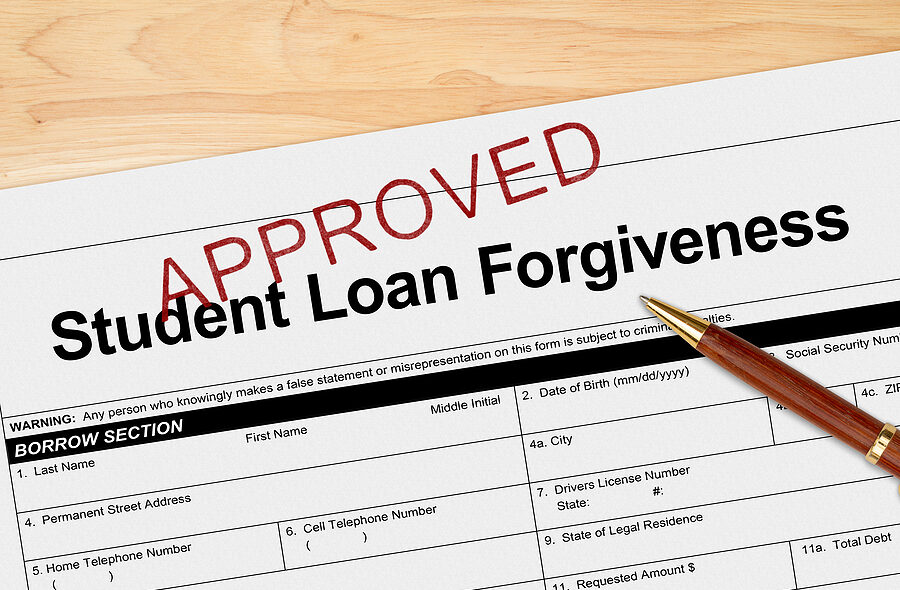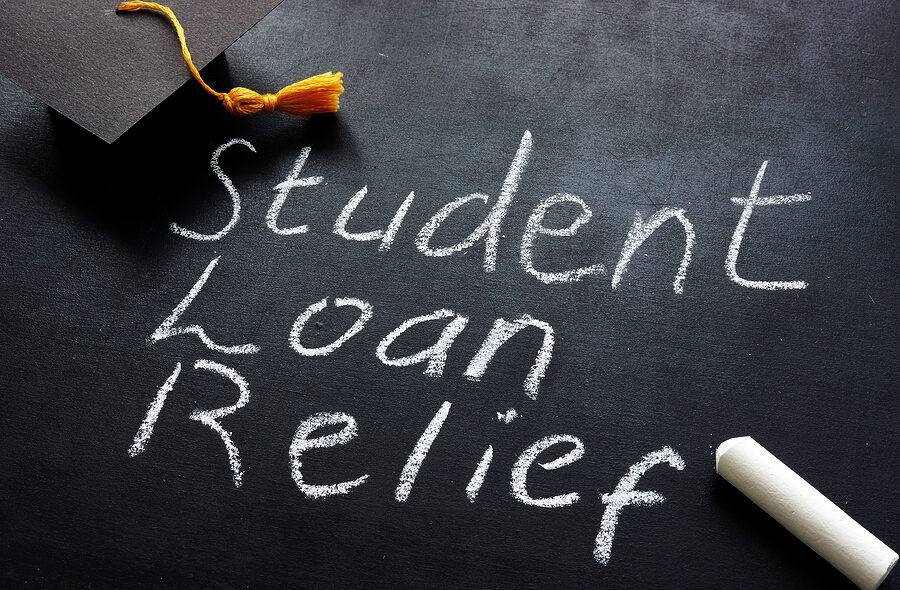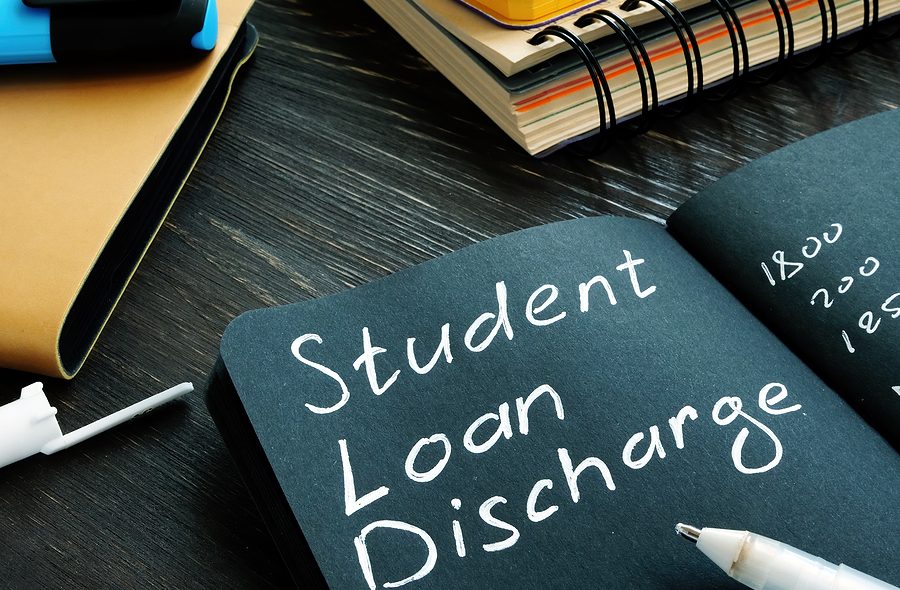According to recent data from the Federal Student Aid Data Center, 43.6 million people have outstanding federal student loan debt. In February 2024, the Biden Administration canceled $1.2 billion for 153,000 borrowers enrolled in the Saving on a Valuable Education (SAVE) repayment plan. And in March, 78,000 borrowers were granted student loan forgiveness through the public service loan forgiveness (PSLF) program, which included many teachers, nurses, firefighters, social workers, and other public servants, including the military.
For those struggling to afford their monthly payments, forgiveness on their student loans may seem like a dream come true. However, it is not always a clean break, and certain forms of student loan forgiveness are taxable.
Thanks to the American Rescue Plan Act of 2021 any student loan debt forgiveness that passes between December 31, 2020, and January 1, 2026, is considered tax-free. Previously, any forgiveness on student loan debt was treated as taxable income.
From Jan. 1, 2026, onward, how student loan forgiveness and discharge programs are taxed depends on the program.
Public Service Loan Forgiveness (PSLF)
Those who work for nonprofit organizations, government agencies, or public service groups may qualify for PSLF if they work for a qualifying employer full-time for 10 years and make 120 qualifying monthly payments. After reaching those milestones, borrowers can apply for debt forgiveness. Once approved, the government forgives the remainder of the balance. PSLF is one of the few programs that is excluded from federal income taxes; none of the forgiven loan amount is taxable as income.
Income-Driven Repayment (IDR) Discharge
IDR plans are for federal loan borrowers and extend the loan terms and base the borrower’s monthly payments on a percentage of their discretionary income.
The government will discharge the remainder if the borrower still has a balance at the end of their loan term. However, the forgiven loans are taxable as income at the federal and state levels.
Borrower Defense to Repayment Discharge
Borrower Defense to Repayment Discharge is a program that eliminates federal student loans belonging to borrowers who their college misled, or if their schools engaged in misconduct and violated state laws.
The IRS and the U.S. Department of the Treasury have issued notices that clarify that loans discharged through Borrower Defense to Repayment are not taxable as income.
Total and Permanent Disability Discharge (TPDD)
TPDD applies to borrowers who become totally and permanently disabled. The government will discharge the remaining loan balance for eligible federal loan borrowers. How and if these are taxed depends on when the loans were discharged. If you received discharge before January 1, 2018, the discharged loan amount is subject to federal income taxes.
Tax on student loan forgiveness for private student loans.
Private student loans are not eligible for federal loan programs like PSLF or TPDD. However, borrowers with private student loans may qualify for other loan forgiveness or discharge programs. For example, some private lenders will discharge the loans of borrowers who become totally and permanently disabled.
The American Rescue Plan specifies that forgiven private student loans are also exempt from federal income taxes through the end of 2025. However, they may be subject to state income taxes. According to the IRS, student loan amounts forgiven under PSLF are not considered income for tax purposes. You will not be taxed by the federal government, but your state may tax you. Any debt forgiven because of PSLF will not create a federal tax liability for you.
Click here to read more.
For borrowers who are struggling with student loan debt, relief options are available. Many student loan borrowers are unaware that they have rights and repayment options available to them, such as postponement of loan payments, reduction of payments or even a complete discharge of the debt. There are ways to file for bankruptcy with student loan debt. It is important you contact an experienced Miami bankruptcy attorney who can advise you of all your options. As an experienced CPA as well as a proven bankruptcy lawyer, Timothy Kingcade knows how to help clients take full advantage of the bankruptcy laws to protect their assets and get successful results. Since 1996 Kingcade Garcia McMaken has been helping people from all walks of life build a better tomorrow. Our attorneys help thousands of people every year take advantage of their rights under bankruptcy protection to restart, rebuild and recover. The day you hire our firm, we will contact your creditors to stop the harassment. You can also find useful consumer information on the Kingcade Garcia McMaken website at www.miamibankruptcy.com.
SOURCES:
Reasons You Can or Can’t Be Taxed on Student Loan Forgiveness (aol.com)




